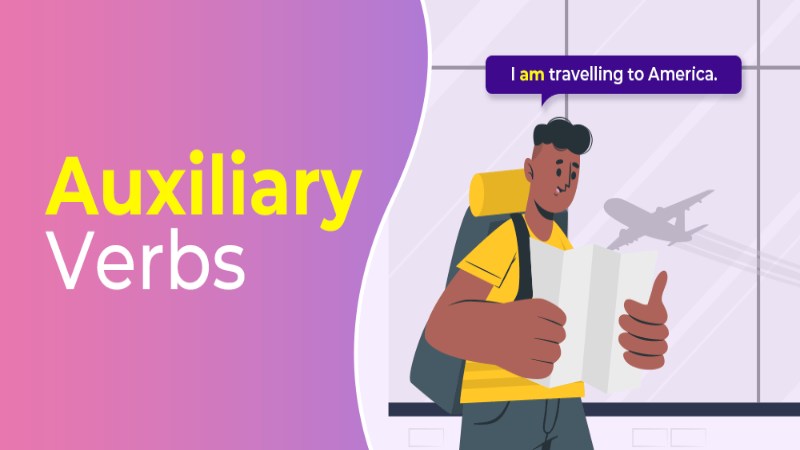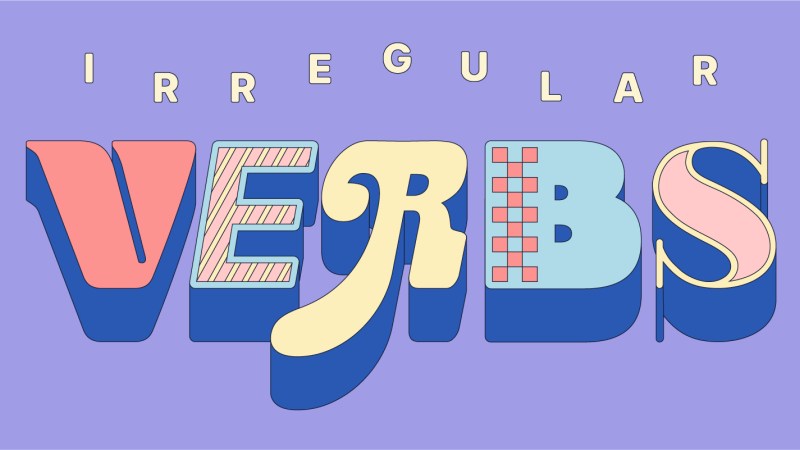
在英文中何时使用助动词?
表示同意时 – 使用 so 和 neither
我们把助动词与 so 和 neither 同时使用,来表示同意已经说过的事情,而不必重复使用相同的动词。
我们用 so +助动词+主语 来同意肯定句。
A: ‘I love reading.’ B: ‘So do I‘. A:“我喜欢读书。” B:“我也是”。
A: ‘I’ll test again.’ B: ‘So will I‘ . A:“我再测试一次。” B:“我也是”。
A: ‘Tom has already finished.’ B: ‘So has Lily‘. A:“汤姆已经完成了。” B:“莉莉也是”。
我们使用 neither/nor +助动词+主语 来同意否定句。
A: ‘I’m not going to attend the party.’ B: ‘Neither am I.’ A:“我不打算参加聚会。” B:“我也不参加。”
A: ‘I can’t focus on the job.’ B: ‘Nor can I.’ A:“我无法专注于工作。” B:“我也不能。”
A: I didn’t like the show. B: ‘Neither did I.’ A:我不喜欢这个节目。 B:“我也是。”
A: I couldn’t find the answers and ‘neither could my sister.’ A:我找不到答案,“我妹妹也找不到。”
如果上句中有助动词,我们用同一个动词表示同意。如果上句中没有助动词,我们使用 do 或 did 。
表示不同意时
我们使用 (Yes/No)+主语+助动词 来表示不同意。如果之前的句子的动词是肯定的,我们使用否定助动词,反之亦然。
A: ‘I’m not going to accept the invitation.’ B: ‘I am.‘ A:“我不会接受邀请的。” B:“我接受。”
A: ‘I didn’t like the food’ B: ‘I did.’ A:“我不喜欢这食物”B:“我喜欢。”
I couldn’t find the solution but my wife could. 我找不到解决办法,但我妻子可以。
A: ‘You will be here before midnight.’ B: ‘No, I won’t.’ A:“你将在午夜之前到达这里。” B:“不,我到不了”
为避免重复时
我们使用助动词来避免在句子中重复相同的动词或动词片语。
如果第一部分包含助动词,我们在第二部分使用相同的动词。
I don’t like going to the zoo, but my kid does. 我不喜欢去动物园,但我的孩子喜欢。
I thought I had brought my phone, but I hadn’t. 我以为我带了手机,但我没有。
Ben can play the piano, and Jen can’t. Ben会弹钢琴,Jen不会。
He has never had to accept those letters, but I have. 他从来不用接受那些信,但我接受了。
如果第一部分不包含助动词,我们在第二部分使用 do 或 did 。
She shares your opinion, but I don’t. 她同意你的观点,但我不同意。
Some wanted to go on with the plan, but others didn’t. 一些人想继续这个计画,但其他人没有。
以问句回应他人时
我们使用问句回应他人来表达兴趣或惊喜。用问句回应他人时,我们使用与前一句相同的助动词。如果前一句中没有助动词,我们使用 do 或 did 。如果前句中的动词是肯定的,则回答问题是肯定的,如果前句中的动词是否定的,则回答问题也是否定的
A: ‘Emy hasn’t taken the exam.’ B: ‘Hasn’t she? I thought she had taken it already.’ A:“埃米没有参加考试。”B:“她没有吗?”?我以为她已经参加了。 ”
A: ‘I won’t be able to attend the party.’ B:’ Won’t you? That’s sad to know.’ A:“我不能参加聚会了。 ” B:“你不能吗?真遗憾”
A: ‘I can learn to do housework by watching.’ B: ‘Can you? That’s awesome.’ A:“我可以通过观看来学习做家务。 ” B:“你能吗?太棒了。 ”
A: ‘She forgot to bring her umbrella. B: ‘Did she? She’ll get wet later on. A:她忘了带伞。 B:”“是吗? 她一会儿会淋湿的。”
表达强调时
当我们想强调一个动词时,经常在说话的时候语气加强助动词,如果有讲到助动词的话。
A: ‘Why aren’t you going to the party?’ B: ‘I am going to the party.’ A:“你为什么不去参加聚会?” B:“我要去参加聚会的。” (我们在说话时会给 am 语气加强 )
然而,我们不能在现在式和过去式的简单肯定句中这样做,因为我们在这些句子中不使用助动词。在这些情况下,我们所做的是在主要动词之前使用do / does (现在)或did (过去)。
A: ‘Why didn’t you go to the party?’ B: ‘I did go to the party.’ A:“你为什么不去参加聚会?” B:“我去参加了聚会了。”
当我们想要反驳某人所说的话时,我们通常会表现出这种强调。
A: ‘Sally doesn’t speak Spanish.’ B: ‘She does speak Spanish. She lived in Spain for two years.’ A:“萨莉不会说西班牙语。” B:她会说西班牙语。她在西班牙住了两年。 ”
A: ‘You didn’t say sorry.’ B: ‘I did say sorry, but he didn’t hear me.’ A:“你没有说对不起。 ” B:“我确实说了对不起,但他没听见。 ”
A: ‘You don’t want to save our marriage’ B: ‘I do want to save our marriage, but you don’t let me try.’ A:“你不想拯救我们的婚姻”B:“我确实想挽救我们的婚姻,但你不让我尝试。 ”
在附加问句中使用时
我们可以在句末使用附加问句来要求确认或检查我们认为是真实的信息。如果句子中的动词是肯定的,我们在附加问句中使用否定的助动词。如果句子中的动词是否定的,我们在附加问句中使用肯定的助动词。
He is a teacher, isn’t he? 他是一名教师,是吗?
You have taken your lunch, haven’t you? 你已经吃过午饭了,是吗?
在附加问句中,我们使用出现在句子中的相同主语,但始终以人称代名词的形式出现: I, you, he, she, it, …等。我们还使用句子中和主要动词相同的助动词。如果句子中没有助动词,我们在附加问句中使用do或did 。
Lisa went by train, didn’t she? 丽莎坐火车去了,是吗?
There are slices of bread left in the kitchen, aren’t they? 厨房里还剩下几片面包,是吗?
You don’t have a ticket, do you? 你没有票,是吗?
在某些情况下,附加问句采用特殊形式:
- I am a bad person, aren’t I? (I am ⇒ aren’t I?)
- Open the window, will you? (请求时 ⇒ will you?)
- Let’s go to the park, shall we? (给建议时 ⇒ shall we?)
英文中助动词的多种用途 – 练习题



Comments